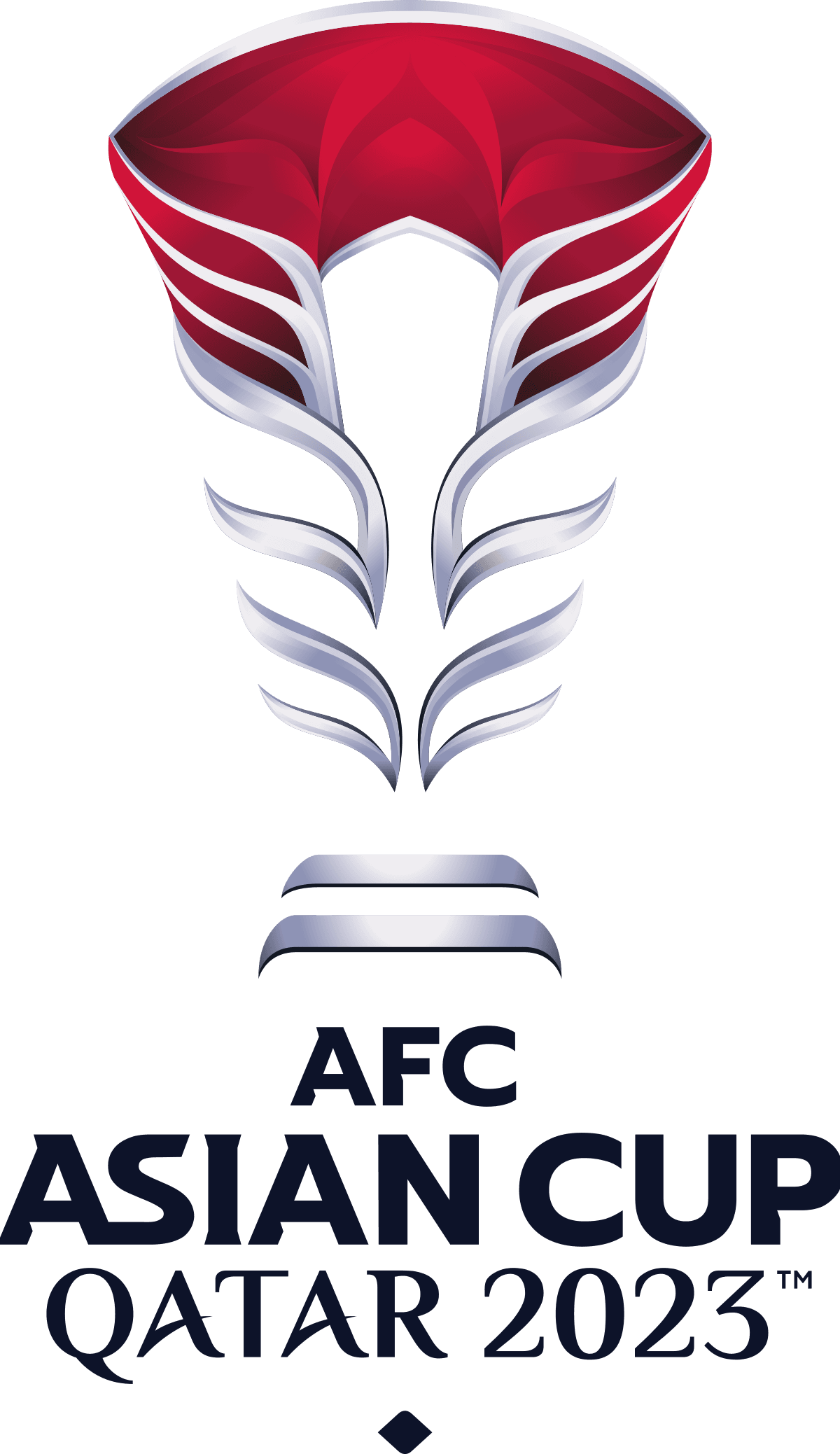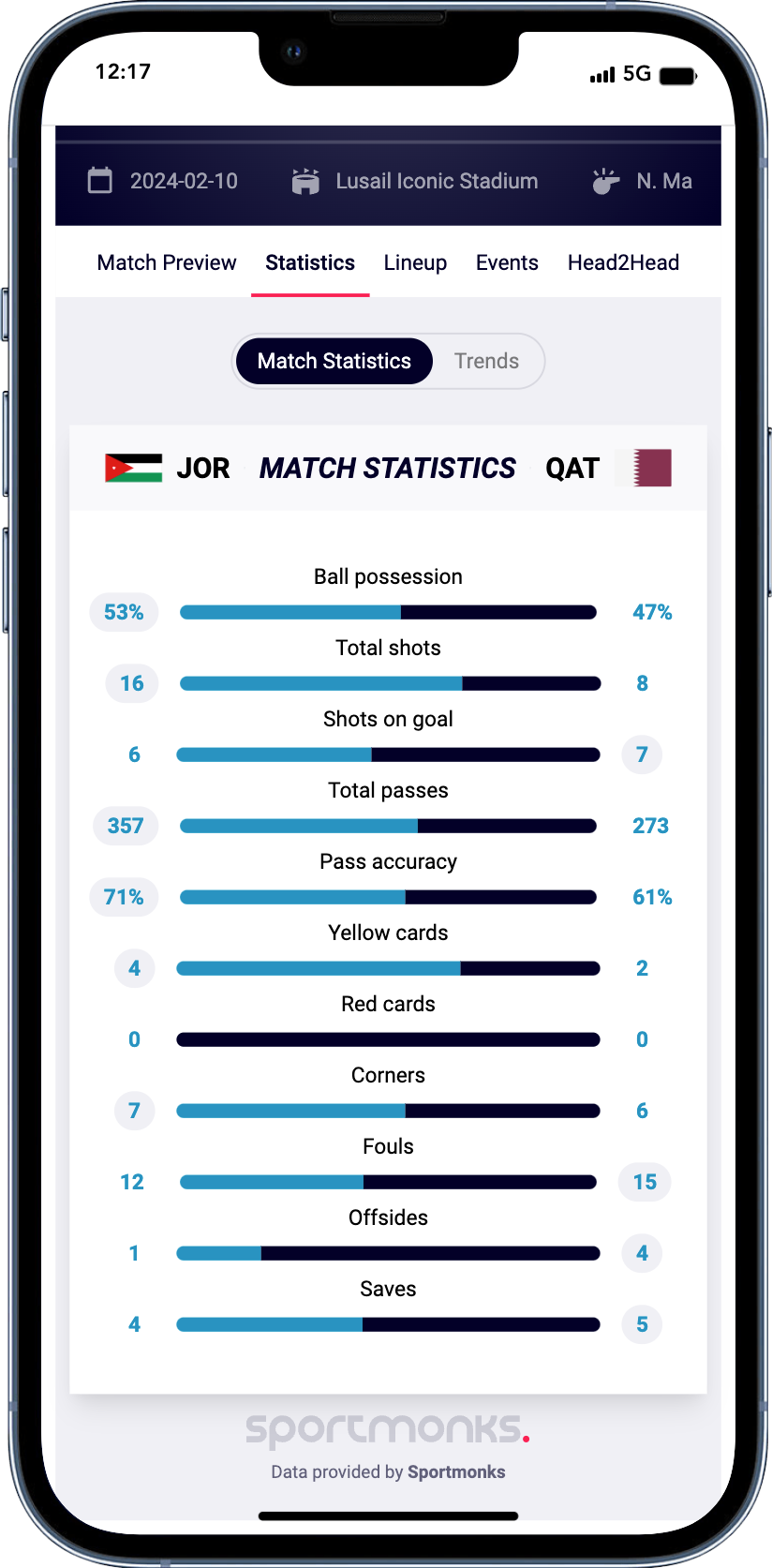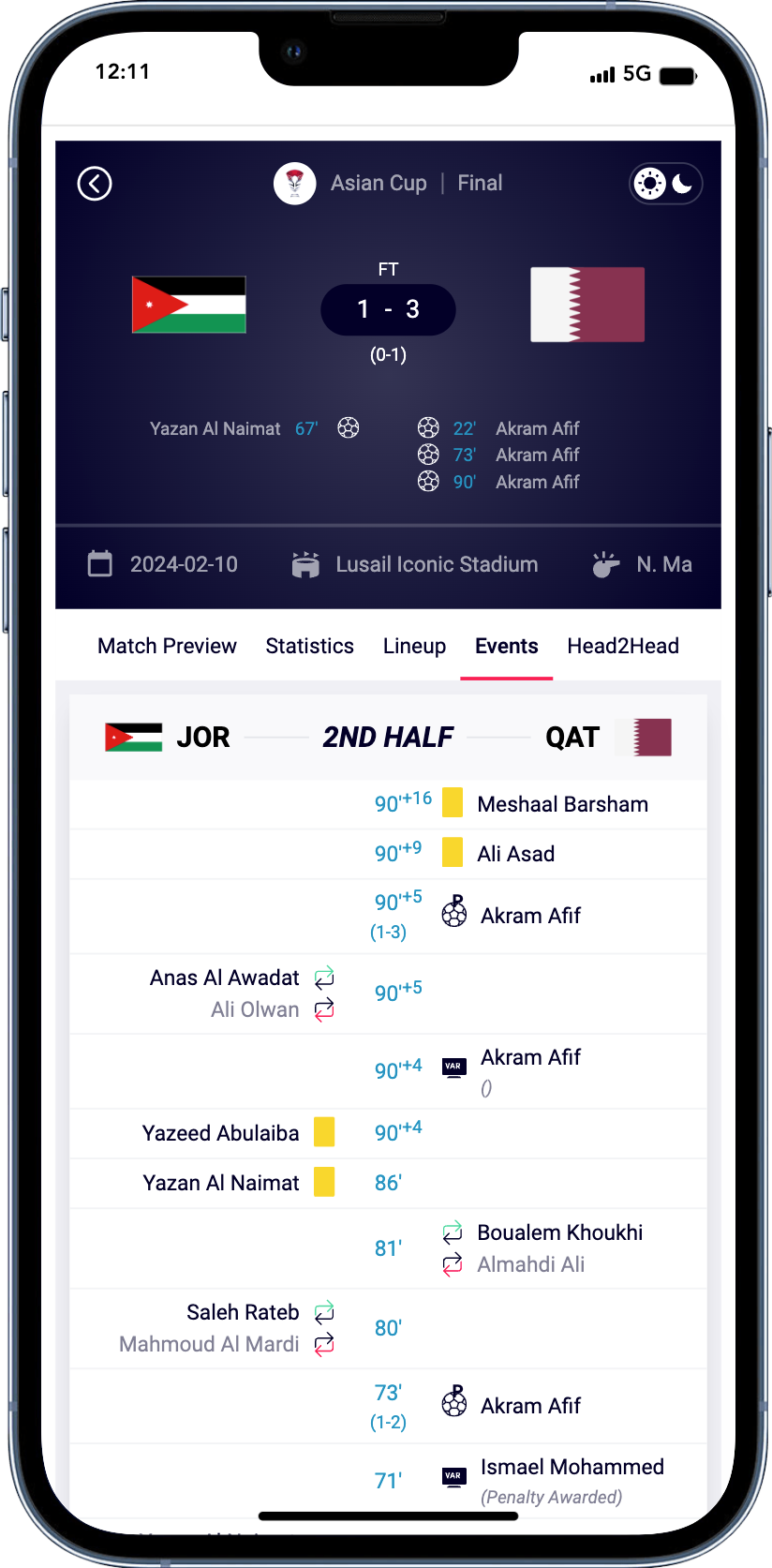AFC Asian Cup Football API
The AFC Asian Cup is the most important international football competition in Asian Football. Real-time data is essential for football enthusiasts.

The AFC Asian Cup is the most important international football competition in Asian Football. Real-time data is essential for football enthusiasts.


Unlock the power of football data with the AFC Asian Cup API. Whether you’re a developer, data enthusiast, or business looking to integrate comprehensive AFC Asian Cup data into your football application, our Football API provides easy access to a wealth of information.
Gain access to a wide range of data points covering every aspect of the AFC Asian Cup, from match fixtures and results to team statistics and player information. Stay up-to-date with real-time updates during matches and track historical data for in-depth analysis. Our Football API is designed for seamless integration into your application or website, with straightforward documentation and dedicated support to assist you every step of the way. Learn more on our developer documentation.
Documentation
Make the best football application with the AFC Asian Cup Football API. The following features are at your disposal minutes after registration:
Experience the power of the AFC Asian Cup API and take your football application to the next level. Sign up today to access our API documentation and integrate AFC Asian Cup data into your project.
Start your free trialThe Asian Cup decides which team becomes the champion of the Asian continent. The European Championship and the Copa América are the equivalents of this tournament only in Europe and South America. The Asian Cup is the second-oldest continental football championship.
The Asian Cup is usually held every four years. The tournament was moved only once because the Summer Olympics and European Championship were scheduled in the same year (2004). The Asian Cup was rescheduled. In 2007, Australia joined the Asian Confederation. In 2019, the Asian Cup expanded from 16 teams to 24 teams.
Since 2019, all qualified teams have played three games in a group of four teams. The winner of a group and the runner-up will proceed to the knockout stage. Another way to advance to the knockout stage is to become one of the four best third-placed teams. In the round of 16, a single-elimination tournament will start.
South Korea won the Asian Cup in 1954 and 1960. Its biggest win was a 16-0 win over Nepal in 2003. Its biggest defeat was in 1948 when it lost 0-12 against Sweden. Its best World Cup result was fourth place in 2002.
Israel won the Asian Cup in 1964 and qualified for the World Cup in 1970. This was the only time Israel participated in the World Cup. The biggest win was a 9-0 win over Chinese Taipei in 1988, while the team lost three times with a six-goal difference. This happened against Yugoslavia (6-0) in 1949, Italy (6-0) in 1961, and while playing Germany( 7-1) in 2002.
Iran has won the Asian Cup three times, being crowned champions in 1968, 1972, and 1976. Their biggest win was a 19-0 win in a match against Guam in 2000. Iran lost two matches with a difference of five goals: against Turkey in 1950 (6-1) and South Korea (5-0) in 1958. Iran has qualified for the World Cup six times and has qualified for the World Cup in Qatar.
Kuwait won the Asian Cup in 1980 and qualified for the World Cup in 1982. Its biggest win was the 20-0 win over Bhutan in 2000. The team lost 8-0, which is the most significant loss in Kuwait, twice. This happened in 1961 against the United Arab Republic and in a match against Portugal in 2003.
Saudi Arabia became champion three times: in 1984, 1988, and 1996. In 1994, they reached the round of 16 of the World Cup. Their biggest win was a 0-10 win over Timor Leste in 2015. On the other hand, Saudi Arabia lost 13-0 in a match against the United Arab Republic in 1961.
Japan won the Asian Cup on four occasions: 1992, 2000, 2004, and 2011, making it the most prosperous country in the Asian Cup. The biggest win was the 15-0 win over the Philippines in 1967, while the biggest defeat was against the Philippines in 1917, which ended in 2-15.
In the World Cup, they managed to get to the round of 16 on three occasions.
Iraq became champion in 2007 and qualified for the World Cup in 1986. The biggest win was a 13-0 win over Ethiopia in 1992, while Iraq lost, with a six-goal difference, against Turkey in 1959, Brazil in 2012, and Chile in 2013. A six-goal defeat is the biggest defeat Iraq has ever faced.
Australia has participated four times in the Asian Cup (since 2007) and became champion in 2015. At the World Cup, Australia reached the round of 16 in 2006. The Socceroos’ biggest win was a 31-0 win against American Samoa in 2001, while the biggest defeat was a 0-8 loss versus South Africa in 1955. The 31-0 is the biggest win at the international level ever.
Qatar is the reigning champion after winning the 2023 edition. They also won the 2019 edition. The World Cup of 2022 was their first, and they were the hosts. The biggest win for Qatar was a 15-0 win over Bhutan in 2015, while the biggest defeat was a 9-0 loss in 1973.